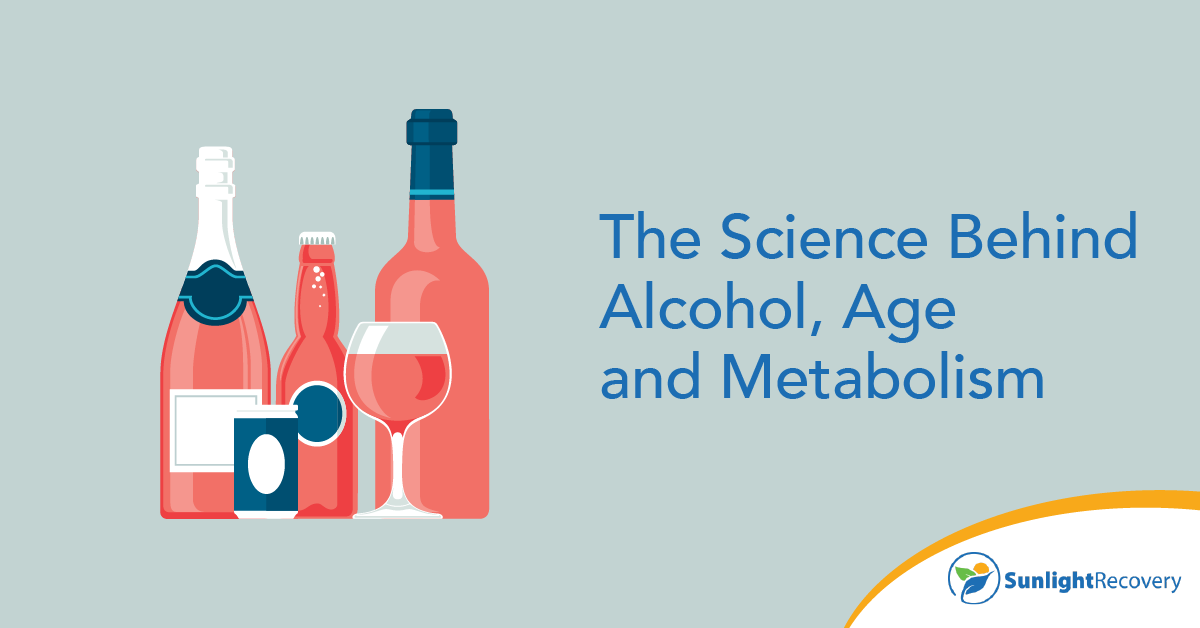As people age, they often find themselves unable to handle alcohol the way they used to. There are a variety of medical reasons this happens, but does alcohol actively age you? The answer is yes, particularly when alcohol is consumed to excess or frequently. The dangers of potential overuse affect a large swath of the population, too. The National Institute on Alcohol Abuse and Alcoholism noted that in 2024, 228.4 million people over the age of 12 reported drinking alcohol at least once. Not only do frequent drinks contribute to excess body fat and dehydration, but they can also cause several issues with your metabolism.
How the Body Metabolizes Alcohol
When you ingest an alcoholic drink, your liver uses enzymes — alcohol dehydrogenase, or ADH — to help eventually break down that ethanol into water and carbon dioxide. The body then excretes these byproducts through processes such as breathing, urination and sweating. As you age, these ADH enzymes become less active; that means the same drink negatively affects a 40-year-old for a longer period of time than a 20-year-old.
Additionally, due to natural reduction in the body’s water levels over time, those excretion processes work less efficiently, retaining the toxic ethanol in the body longer. While it remains in the body and bloodstream, ethanol causes oxidative harm to healthy cells and internal organs, leading to more damage over time.
Why Alcohol Affects People Differently at Different Ages
A 2024 study cited by the Journal of the American Medical Association found that for some adults, even a single drink a day can increase the risk of death. So, at what age should you stop drinking alcohol? While there isn’t a universal consensus, doctors generally agree that adults aged 60 and older should consider cutting out alcohol entirely.
Not only are people in these age categories more susceptible to its ill effects due to reduced ADH enzymes, other factors, such as medication interactions, are a serious concern. Certain medications often prescribed to older adults can slow ethanol excretion even further or interact with it in ways that increase blood pressure or prevent medication absorption.
Does Alcohol Age You Internally?
Bodies naturally change with age, including the loss of muscle tone and a potential increase in fat stores due to reduced activity and movement. But does drinking age you inside and out? Again, the answer is a firm “yes” from scientists and doctors alike. A 2024 article from the Mayo Clinic notes that lower water levels in the body as people age also inhibit the ability to process and eliminate alcohol quickly. The longer it remains in the bloodstream, the greater the likelihood of side effects such as hangovers, nausea and loss of balance, leading to additional medical concerns.
While the more immediate effects of alcohol, including liver disease and cognitive problems, are widely known, cancer is another big concern. A 2025 report by the U.S. Surgeon General cautions that alcohol can alter hormones such as estrogen and ultimately contribute to breast cancer.
Increased Risks of Alcohol-Related Health Issues Over Time
Older adults are more likely to be isolated for longer periods of time due to a combination of factors including shifting socialization, empty-nest syndrome and even retirement from a job. This environment makes it easy for alcohol misuse to creep in unnoticed. But even when alcohol is consumed sparingly, the fact that drinks have a stronger effect as people age means drink-related impacts can have a more lasting negative effect. Problems such as dehydration, loss of balance or cognitive decline are serious by themselves, but combined with comorbid issues, including medication interactions, they can turn deadly.
During checkups with doctors and other medical professionals, be honest about your current or planned alcohol consumption frequency. The medications they prescribe may be affected by alcohol, and omitting information or lying about your drinking can have some serious medical consequences.
How Drinking Guidelines Should Shift With Age
Drinking at a younger age may be associated with good memories and old friends, but your body changes over the years. While you may have been able to handle a certain number of drinks without much difficulty in your 20s, it’s dangerous to assume the same limit still holds. Don’t use historical sobriety timelines to determine if, for example, you’re safe to get behind the wheel of a car or make an important legal or financial decision.
The safest approach is to treat alcohol as a new, unknown substance, even if you drank without issue years ago. If you plan to drink, test how alcohol affects you as you age, find out whether it’s dangerous when used with your current medications and learn the ways it affects your body cognitively and physically. Due to slowed metabolic processing, a drink today might hit you twice as hard as it did 10 or 20 years ago.
When to Seek Support for Changing Alcohol Tolerance
Unless instructed otherwise by a doctor, an occasional responsibly imbibed drink can be relatively harmless. That said, if you’re experiencing physiological issues, such as balance or cognition difficulties, or you find yourself unable to stop drinking, it’s time to seek help. You might have developed an alcohol dependency you’re unaware of, and if continued unchecked, it may impact your health for the rest of your life.
If you suspect you may have a harmful relationship with alcohol, talk with your doctor about your struggles and ask what type of help is available to you. Typically, a medical professional can offer a checklist or test to determine if you have a problem and provide advice on support groups and other intervention treatments. Alcohol misuse and abuse can occur at any age, and in older adults, it can go unnoticed even by their loved ones.
We’re Here to Help You
Struggling with alcohol as an older adult can feel isolating or hopeless, but the good news is that it doesn’t have to be that way. Contact Sunlight Recovery’s caring medical team, 24 hours a day, 7 days a week, to start on the path to a healthier life with the support you need and deserve.







